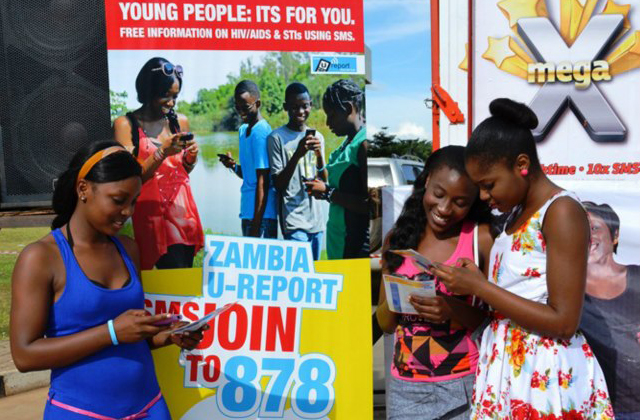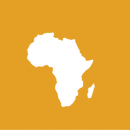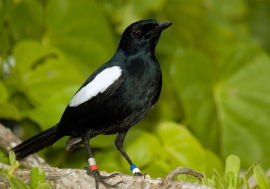Africa Wired
Africa embraces mobile app health revolution
By Ying M. Zhao-Hiemann

The application of mobile technologies in Africa’s healthcare system, popularly known as mHealth, has gained momentum in recent months. Nigeria, the region’s most populous country, for example, managed to contain the deadly Ebola virus in October 2014 partly due to the application of mHealth. Nigerian health officials attribute the success to fast communication and instant tracking made possible by the proactive use of mobile phone technology.
How did Nigeria do it?
Health workers deployed mHealth app-loaded mobile phones provided by eHealth & Information Systems Nigeria, a non-profit research company with operations in Nigeria and the United States.
The app helped to significantly reduce reporting time of Ebola cases from 12 hours to six hours initially, and eventually reports were made in real time, according to Daniel Tom-Aba, the senior data manager at the Ebola Emergency Operation Centre in Lagos.
Nigerian contact tracers also used mobile phones equipped with GPS tracking, which allowed authorities to verify the tracers’ locations while they visited individuals suspected of being exposed to the virus. These tracers visited 18,500 homes across the country during the Ebola campaign. The same mHealth tools are also being applied in the Ebola fight in other countries.
In September 2014, UNICEF launched RapidPro, which is a free, open-source platform hosting multiple apps developed jointly by UNICEF Innovation Labs and Nyuruka - a Rwandan software firm. mHero (Mobile Health Worker Ebola Response and Outreach), one of the apps on RapidPro, is currently being used in Liberia in support of local efforts to combat Ebola. The app reports on new cases, broadcasts messages about care and prevention and shares training information, thereby allowing real-time coordination between the health ministry and frontline health workers.
“Emerging technologies can facilitate early warning systems, outbreak response, and communication between healthcare providers, wildlife veterinarians and other animal health professionals, local and national health authorities, and international health agencies,” wrote Rashid Ansumana, Jesse Bonwitt, David A. Stenger and Kathryn H. Jacobsen, four Sierra Leone-based researchers in the medical journal The Lancet.
While the application of mobile technologies in Ebola response is currently in the spotlight, mHeath apps could also potentially address other important public health issues, such as HIV/AIDS, tuberculosis, malaria and maternal health, according to a study by the World Health Organization.
In Zambia, for instance, U-Report, another UNICEF mHealth tool, uses simple text messages and basic mobile phones to link people to the resources of the National AIDS Council. UNICEF and the health ministry rely on the SMS tool to spread messages about HIV/AIDS. Since its initial launch in 2012, over 50,000 young people have been referred to anonymous counselling services, and voluntary testing among U-reporters has reached 40%, which is significantly higher than the 24% national average, according to UNICEF.
The private sector in Africa is also getting involved in mHealth. As a follow-up to its Pan African mHealth Initiative, GSMA, an association of mobile phone operators and related companies, introduced the ambitious mHealth Ecosystem Partnership in June 2014, which aims to link mobile phone and healthcare industries to jointly deliver mHealth services to pregnant women and mothers across sub-Saharan Africa, for a potential annual market of 15.5 million users. Currently, the new partnership consists of eight companies: Gemalto, Hello Doctor, Lifesaver, Mobenzi, Mobilium, MTN, Omega Diagnostics and Samsung.
The partnership rolled out services in Côte d’Ivoire, Ghana, Nigeria, Rwanda, South Africa, Uganda and Zambia in September 2014. Using discounted Samsung smartphones and tablet devices, consumers in these countries can now gain free access to health content, health registration and data collection via the pre-embedded Smart Health app.
Smart Health is a free, Africa-specific app that provides accurate, real-time information on HIV/AIDS, tuberculosis and malaria, along with approved symptom checkers for each disease. Mobilium, Smart Health’s developer, confirmed that the next versions of the app will include information on nutrition as well as prenatal and postnatal mother and newborn care.
According to Devex, a social enterprise for the global development community, there will be an estimated one billion mobile phone accounts in Africa by the end of 2015 – one for nearly every person on the continent.
In the meantime, in the past year alone, more and more low-cost smartphones, such as the US$45 Steppa from MTN and the US$50 Smart Kicka from Vodacom, are becoming affordable. Both in terms of hardware and software, Africa is ready to embrace the mHealth revolution.


















